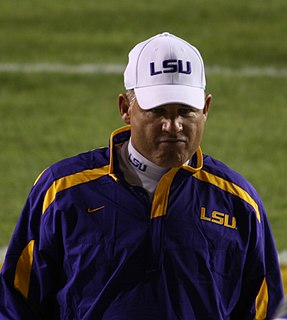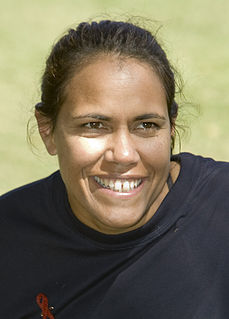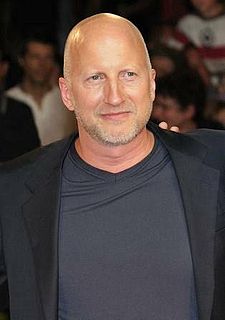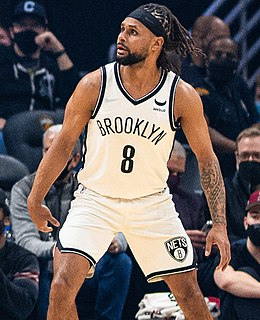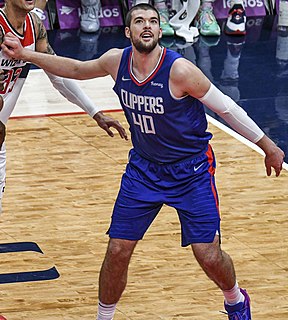A Quote by Les Miles
Jamie Keehn, our second Australian punter. Again, you have to learn the language. You just can't speak to those guys. You have to know how to speak Australian. ... Australians have a higher voice. When you just speak regular English, it doesn't quite get across. Of course, we've had experience with our Australians, so we're pretty comfortable with adjusting our dialect so that it fits the ability to communicate.
Related Quotes
I speak English, obviously, Afrikaans, which is a derivative of Dutch that we have in South Africa. And then I speak African languages. So I speak Zulu. I speak Xhosa. I speak Tswana. And I speak Tsonga. And like - so those are my languages of the core. And then I don't claim German, but I can have a conversation in it. So I'm trying to make that officially my seventh language. And then, hopefully, I can learn Spanish.
I have been told many times that when I win I make my people proud to be Australian. I am Aboriginal, I am one of them and every time I win or am honoured like this it should be an example to Aboriginal people who may think they have nowhere to go but down. But more importantly I am an Australian and I would like to make all Australians feel proud to be Australian. Ours is a truly multicultural society and should be united as such. I would like to believe that my successes are celebrated by all Australians, bringing our nation together.
I'm an Australian. And I'm speaking generally here, but Australians in general aren't patriotic or nationalistic. Our country was built by immigrants. So, by my experience, I've seen the way immigration has transformed nations. They are the key people who quite literally build civilizations, be it culturally or musically.
It's just nice to be able to communicate and be able to identify with a lot of different cultures. I have no idea what it would be like to be just one thing and speak one language. I feel enormously privileged to travel and be able to mingle and speak to people that, had I only known English, I wouldn't have been able to meet.
The great works belong to no one nation, no one cultural tradition even. They are universal.I want an Australian vision of arts policy that is expansive, is embracing, is not narrow, is not parochial. For example, that Australians can do Shakespeare just as well as Englishmen can because we, like every civilised nation, partake of the great canonical works. It's not about Australian nationalism; it's about our identity as a culturally ambitious, culturally sophisticated nation.
In a world as competitive as ours, the child who does not get a decent education is condemned to the fringes of society. I think all Australians agree that this is intolerable. So we must demand as much of our schools as we do of our sports teams - and ensure that they keep the Australian dream alive for every child.
